

 (ማስታወቂያ)
(ማስታወቂያ)
In the vast landscapes of Ethiopia, a land renowned for its rich cultural heritage and breathtaking natural beauty, a group of brilliant minds has been making groundbreaking strides in the world of science. Their astonishing discoveries and tireless dedication have not only brought immense pride to their nation but have also left a permanent mark on the global scientific community.

In this article, we will see the remarkable achievements of Ethiopian scientists, who have harnessed their intellect and passion to discover mysteries, improve lives, and shape the future. Join us on this captivating journey as we unveil the extraordinary contributions of these extraordinary minds, demonstrating the power of curiosity and innovation in unlocking the secrets of our world.
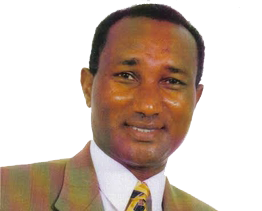
Kitaw Ejigu, an Ethiopian-American scientist and politician, holds a remarkable place in the annals of aerospace engineering. Born on February 25, 1948, in Bonga, Ethiopia, Kitaw’s journey from humble beginnings to becoming a chief spacecraft and satellite systems engineer for NASA spanned four decades. During his illustrious career, Kitaw collaborated with his colleagues to invent spacecraft and rockets that played a vital role in supporting Planetary Science Research and Exploration. His contributions extended to the creation of the Flight Dynamic Simulator, the Advanced Global Positioning Satellite System, and advancements in Aerospace Rocket mechanics. Before venturing to the United States, Kitaw garnered experience as the Chief Technical Advisor and Assistant Manager for the Ethiopian Automotive Services and Sales Company. His diverse background and expertise shaped his multidimensional approach to scientific innovation. Tragically, Kitaw's journey was cut short when he suffered a stroke on January 8, 2006, and passed away on January 13, 2006. His untimely demise marked a significant loss for the scientific community. Kitaw Ejigu’s early life was rooted in the vibrant landscapes of Ethiopia. After completing his primary and secondary education in Bonga, Waka, and Jimma, he pursued higher education at the Polytechnic College of Ethiopia. In 1966, he graduated as the top student in his class, earning a degree in Mechanical Engineering. Kitaw's profound achievements and unwavering dedication to aerospace engineering continue to inspire countless individuals around the world. His story serves as a testimony to the transformative power of education, determination, and the pursuit of scientific excellence. In memory of Kitaw Ejigu, we celebrate his indelible contributions to the field of aerospace engineering, forever etching his name as a pioneer and trailblazer in the pursuit of scientific knowledge and exploration.
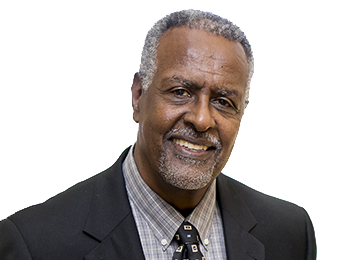
Gebisa Ejeta, a distinguished Ethiopian scientist, has left an indelible mark on the field of agricultural research, revolutionizing crop improvement techniques and making significant contributions to global food security. Born in the remote village of Wollonkomi, Ethiopia Gebisa overcame numerous challenges to become a driving force in sustainable agriculture and rural empowerment. His extraordinary journey is a testament to perseverance and the profound impact one individual can have on transforming lives and communities. From a young age, Gebisa demonstrated a thirst for knowledge and a determination to make a difference. Encouraged by his mother, he embarked on a remarkable journey, walking 20 kilometers to the nearest elementary school every Sunday evening, where he would spend the week studying. It was during his primary school years that Gebisa initially aspired to pursue engineering. But it was his mother's conviction that he could create a greater impact in the field of agriculture that steered him towards his path as a visionary scientist. With support from the Oklahoma State University, Gebisa attended an agricultural and technical secondary school in Ethiopia, and later pursued studies at what is now Haramaya University. Recognizing his potential, the university, along with the U.S. Agency for International Development, facilitated his journey to earn a doctorate from Purdue University, USA. Gebisa's pioneering work began to take shape during his time in Sudan in the early 1980s, where he developed Africa's first commercially viable hybrid variety of drought-tolerant sorghum. This breakthrough significantly increased crop yields and resilience, transforming the lives of smallholder farmers across the continent. Later, alongside a colleague at Purdue University in Indiana, Gebisa made a groundbreaking discovery by unraveling the chemical basis of the deadly relationship between the parasitic weed striga and sorghum. Armed with this knowledge, he successfully developed sorghum varieties that were not only resistant to drought but also exhibited resilience against striga infestation. Gebisa's exceptional contributions to agricultural research garnered international recognition. In 2011, he was appointed by President Barack Obama as a Member of the Board for International Food and Agricultural Development, further cementing his position as a global leader in the field. In a momentous achievement, Ejeta was honored with the National Medal of Science by President Biden in 2023, a testament to his groundbreaking research and its far-reaching impact. Gebisa Ejeta's firm dedication to improving agricultural practices and his remarkable scientific achievements have not only transformed the lives of farmers across Africa but have also earned him a place among the most respected scientists in the world. His relentless pursuit of innovative solutions to combat hunger, poverty, and agricultural challenges continues to inspire and guide future generations in their quest for sustainable development.

Rediet Abebe, an exceptional Ethiopian computer scientist and advocate for social impact, has made significant contributions to the fields of artificial intelligence and algorithmic fairness. Her work focuses on addressing societal challenges through the lens of technology, with a particular emphasis on promoting equitable access and opportunity. Born and raised in Addis Ababa, Ethiopia, Rediet's passion for harnessing the power of technology to drive positive change emerged at an early age. She pursued her higher education in the United States, earning a Bachelor's degree in Computer Science from Harvard University and a Ph.D. in Computer Science from Cornell University. Rediet's research centers around reducing algorithmic bias and ensuring fairness in decision-making systems. She has developed innovative algorithms and methodologies that mitigate inherent biases in machine learning models, enabling more equitable outcomes across various domains. Her groundbreaking work has the potential to address long-standing disparities and promote social justice in areas such as healthcare, education, and criminal justice. Beyond her technical expertise, Rediet is deeply committed to fostering inclusivity and diversity within the technology industry. She co-founded and co-leads Black in AI, an organization dedicated to increasing the presence and influence of Black researchers in the field of artificial intelligence. Through mentorship programs, workshops, and conferences, Rediet actively works towards creating a more inclusive and representative AI community. Rediet's exceptional contributions have been widely recognized and honored. She has been named a Forbes 30 Under 30 honoree, received the prestigious Facebook Fellowship, and was recognized as one of MIT Technology Review's Innovators Under 35. Rediet Abebe's inspiring journey exemplifies the transformative potential of combining scientific excellence with a deep commitment to social impact. Through her pioneering research and advocacy, she is reshaping the landscape of artificial intelligence, striving to ensure that technology benefits all members of society, regardless of their background or circumstances. Rediet's work serves as an inspiration to aspiring scientists and underscores the importance of leveraging technology for the betterment of humanity.

Zeresenay Alemseged, commonly known as Zeray, is an esteemed Ethiopian paleoanthropologist whose groundbreaking discoveries have shed light on human evolution. Born on June 4, 1969, in Axum, Ethiopia, Zeray's contributions to the field of paleoanthropology have earned him international recognition and acclaim. Zeray's most notable discovery came in 2000 when he unearthed the fossilized remains of a 3.3-million-year-old child in the Dikika region of Ethiopia. This remarkable find, known as "Dikika baby" or "Lucy’s child," provided unprecedented insights into the early stages of human evolution. The fossilized remains offered valuable clues about the anatomy and locomotion of our ancient ancestors, bridging the gap between humans and our distant primate relatives. Through meticulous analysis and scientific investigation, Zeray meticulously reconstructed the skeletal structure of Selam, unveiling a wealth of information about early hominin development and the evolutionary origins of bipedalism. His work has been instrumental in expanding our understanding of how our human ancestors adapted to walking on two legs. Zeray's contributions extend beyond the Dikika discovery. He has been actively involved in numerous paleontological expeditions and research projects throughout Ethiopia, unearthing additional fossil remains that have further enriched our understanding of human evolution in Africa. In addition to his remarkable scientific achievements, Zeray is also dedicated to fostering scientific education and research in Ethiopia. He co-founded the Dikika Research Project, which aims to inspire and train the next generation of Ethiopian scientists, ensuring the country's continued contributions to the field of paleoanthropology. Zeresenay Alemseged's pioneering work has revolutionized our knowledge of human evolution, pushing the boundaries of our understanding back millions of years. His discoveries continue to captivate the scientific community, providing invaluable insights into our shared ancestral past. Zeray's unwavering passion for unraveling the mysteries of human origins serves as an inspiration for aspiring scientists worldwide, showcasing the power of curiosity, perseverance, and scientific inquiry.
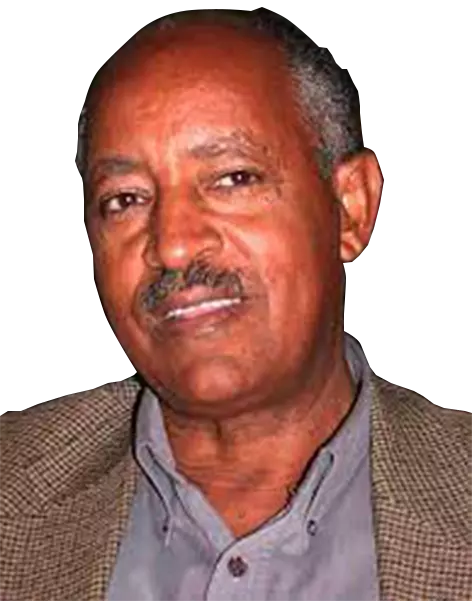
Berhane Asfaw, born on August 22, 1954, in Gondar, Ethiopia, is an esteemed Ethiopian paleontologist affiliated with the Rift Valley Research Service. Throughout his remarkable career, Berhane has made significant contributions to our understanding of human evolution and played a pivotal role in groundbreaking discoveries. Berhane's notable achievements include the co-discovery of human skeletal remains at Herto Bouri, Ethiopia, which were later classified as Homo sapiens idaltu—an early subspecies of anatomically modern humans. These findings provided crucial insights into the origins and diversity of our ancient ancestors. Berhane Asfaw's academic journey began in 1972 when he joined Addis Ababa University and later Haile-Selassie I University at Alemaya Agricultural College campus. Despite interruptions caused by the Ethiopian revolution in 1974, he resumed his studies in 1978 and graduated in 1980 with a Bachelor of Science in geology. His thirst for knowledge and passion for African prehistory led him to the University of California at Berkeley in 1981, where he pursued a graduate program under the guidance of Professor J. Desmond Clark. Berhane's interest in human biological evolution flourished when he joined Professor Tim White's courses and subsequently shifted his focus to physical anthropology. He completed his Ph.D. under the supervision of Professor Tim White in 1989. Throughout his career, Berhane Asfaw has been an instrumental figure in Ethiopian paleontology. He served as a private researcher at the Ethiopian Ministry of Culture's Centre for Research and Conservation of Cultural Heritage for over 25 years. Berhane established the first research laboratory at the National Museum of Ethiopia and led major archaeological expeditions in the Afar region, resulting in groundbreaking discoveries in human evolution. Berhane faced significant challenges during the Derg period, enduring the loss of colleagues who were arrested and killed. He also criticized the Derg's disregard for archaeological sites during the construction of the Melka Wakena Dam in 1988. However, with the advent of stability brought by the Ethiopian People's Revolutionary Democratic Front (EPRDF), Berhane's research group was able to work in remote areas, leading to remarkable findings. Among their notable discoveries, Berhane's research group identified the earliest Acheulean in 1992, a groundbreaking find featured on the cover of Nature. In 1997, they discovered Australopithecus garhi, and at Herto Bouri near the Middle Awash, they uncovered the fossilized remains of Homo sapiens idaltu. Over the years, Asfaw's excavations continued to yield valuable fossils, including Australopithecus anamensis and Homo erectus, solidifying Ethiopia as a treasure trove of early human ancestry. Berhane Asfaw's tireless dedication to unraveling the mysteries of human evolution has earned him membership in the National Academy of Sciences. His contributions have significantly enriched our understanding of our shared origins and highlighted the importance of Ethiopia as a key site for studying early human history. Berhane's remarkable discoveries continue to shape the field of paleontology, leaving an indelible legacy in the quest to comprehend our ancient past.
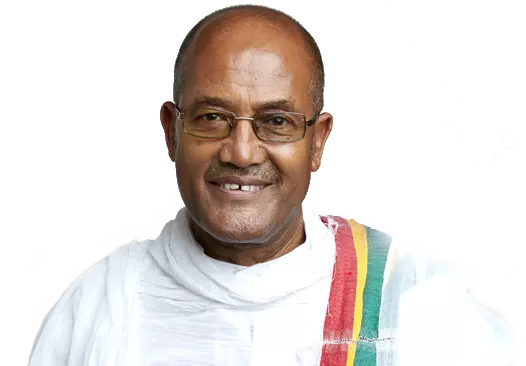
Sebsebe Demissew, born on June 14, 1953, is a highly esteemed Professor of Plant Systematics and Biodiversity at Addis Ababa University and serves as the Executive Director of the Gullele Botanic Garden in Addis Ababa, Ethiopia. In recognition of his exceptional contributions to the field of botany, Sebsebe was honored with the prestigious Kew International Medal in 2016. This award acknowledged his significant impact on botanical research and conservation efforts. In 2018, Sebsebe was elected as a Foreign Member of the Royal Society (ForMemRS) in acknowledgment of his outstanding achievements in research and innovation. This esteemed membership represents the recognition of his remarkable contributions to the scientific community. Sebsebe's educational journey began at Addis Ababa University, where he earned a Bachelor of Science degree in Biology in 1977. He continued his studies and obtained a Master of Science degree in Botany in 1980. Furthering his academic pursuits, he pursued postgraduate studies at Uppsala University in Sweden, where he successfully completed his Ph.D. in 1985. His doctoral research focused on the botany of the Maytenus genus of plants in tropical Africa and Arabia. In 2021, Demissew's lifelong dedication to conserving and documenting Ethiopia's diverse flora was recognized with the Cuatrecasas Medal for Excellence in Tropical Botany by the Smithsonian National Museum of Natural History in the United States. This prestigious accolade celebrates his remarkable achievements and leadership in the Ethiopian Flora Project and the National Herbarium, as well as his invaluable contributions to understanding and protecting Ethiopia's rich botanical heritage. Sebsebe Demissew's remarkable career and commitment to botanical research and conservation have garnered international acclaim. His contributions to advancing the field of tropical botany have made a lasting impact, particularly in the exploration and preservation of Ethiopia's unique plant species. Through his leadership, research, and dedication, Sebsebe continues to inspire fellow scientists and conservationists worldwide, leaving an enduring legacy in the realm of botanical science.

Senait Fisseha, an esteemed Ethiopian-American physician, lawyer and obstetrician-gynecologist, with a specialization in endocrinology from the University of Michigan, has played a significant role in global health and advocacy, particularly in the areas of women's health and COVID-19 response. In 2017, Senait chaired a successful campaign and transition for the election of Dr. Tedros Adhanom Ghebreyesus as the first African director-general of the World Health Organization (WHO). She later became his Chief Adviser, actively contributing to his impactful leadership. The campaign witnessed the participation of all member states of the WHO, and Senait's efforts were instrumental in securing Dr. Ghebreyesus's victory with 133 out of 185 votes. Throughout her career, Fisseha has held various positions on global health boards and committees. She has been a member of the Lancet-SIGHT Commission on Peaceful Societies Through Health and Gender Equality, chaired by Tarja Halonen, as well as the WHO's Council on the Economics of Health for All, chaired by Mariana Mazzucato. In 2022, she joined the Commission for Universal Health convened by Chatham House, co-chaired by Helen Clark and Jakaya Kikwete. Senait’s involvement extends to numerous associations and fellowships, including the American Society of Reproductive Medicine, the European Society for Human Reproduction and Embryology, and the American College of Legal Medicine, among others. She holds positions in esteemed organizations such as Exemplars in Global Health, Global Health 50/50, Harvard Ministerial Leadership Program, and the University of Global Health Equity. During the COVID-19 pandemic, Senait emerged as a prominent advocate, addressing global health disparities and promoting equitable policy and vaccine distribution. She worked closely with African leaders and the African Center for Diseases Control, advocating for a new public health order based on global cooperation. Senait served as a Commissioner in the African Union COVID-19 Commission chaired by President Cyril Ramaphosa of South Africa. Senait 's contributions also include her role as the founder and co-chair of the first International Conference on Public Health in Africa (CPHIA) held in December 2021. The conference aimed to accelerate progress in the response against COVID-19 by leveraging African expertise and resources. She continues to serve as one of the co-Chairs, ensuring its impact as a major annual public health event. Recognized for her influential work, Senait has received numerous awards and honors. She was named one of the 100 most influential Africans by New Africa Magazine in 2018 and received the Award of Merit from the African Leadership University. The Ethiopian Ministry of Health bestowed upon her its highest honor in 2013, and she has been recognized by the University of Michigan with the early distinguished career achievement award and the Bicentennial Alumni Award. Senait has also been acknowledged as one of the 100 Most Influential People in Gender Policy and listed among the 'Top Forty Most Forward-Thinking Women' by Athena40. Dr. Senait Fisseha's tireless dedication to global health, her advocacy for women's health, and her impactful contributions to the COVID-19 response demonstrate her unwavering commitment to improving healthcare outcomes worldwide. Her leadership and expertise continue to inspire and drive positive change in the field of global health.

Timnit Gebru is an Eritrean Ethiopian-born computer scientist and AI ethics researcher known for her groundbreaking work in the field of artificial intelligence (AI). Born in Ethiopia, Timnit’s contributions have greatly influenced the development of ethical AI and diversity in the tech industry. Timnit’s research primarily focuses on addressing the biases and ethical implications of AI systems. She has shed light on the disproportionate impact of AI technologies on marginalized communities, highlighting the need for fairness, transparency, and accountability in algorithmic decision-making. One of Timnit’s notable research projects involved studying the biases present in facial recognition systems. Her work revealed the inherent racial and gender biases embedded within these technologies, which can lead to discriminatory outcomes in real-world applications. This research sparked important conversations about the responsible development and deployment of AI systems. In addition to her research, Timnit has been an advocate for diversity and inclusion within the tech industry. She co-founded the organization Black in AI, which aims to increase the representation of black researchers in AI and related fields. Through her efforts, she has helped amplify underrepresented voices and foster a more inclusive AI community. Timnit’s work has not only earned her recognition and accolades but has also driven policy changes in the tech industry. However, her career has not been without challenges. In 2020, she made headlines when she co-authored a paper critical of large-scale language models, highlighting their environmental and societal impact. This led to her departure from the prominent tech company GOOGLE, and sparked conversations about academic freedom and industry research ethics. Despite the obstacles she has faced, Timnit continues to be a prominent voice in AI ethics and remains committed to advancing the field while advocating for ethical AI practices and diversity. Her contributions serve as an inspiration to aspiring scientists and researchers, reminding us of the importance of critically examining the social implications of emerging technologies. Timnit Gebru’s impactful research, advocacy, and commitment to ethical AI have reshaped the conversation around AI development and its impact on society. Her dedication to addressing biases, promoting inclusivity, and fostering responsible AI practices has left an indelible mark on the field, paving the way for a more equitable and ethically-conscious future.

Segenet Kelemu, a renowned Ethiopian scientist, is widely recognized for her exceptional research as a molecular plant pathologist and her remarkable scientific leadership. Over the course of nearly three decades, Segenet and her research team have made significant contributions to addressing agricultural challenges in Africa, Asia, Latin America, and North America. Since 2013, Segenet has held the esteemed position of Director General at the International Centre of Insect Physiology and Ecology (ICIPE), the only research institute in Africa dedicated to the study of insects and other arthropods. Prior to this role, she served as the Director of Biosciences eastern and central Africa (BecA), Vice President of Programs at the Alliance for a Green Revolution in Africa (AGRA), and Leader of Crop and Agroecosystem Health Management at the International Center for Tropical Agriculture (CIAT). Segenet's exceptional contributions have earned her numerous international accolades. She was honored with the L'Oréal-UNESCO Awards for Women in Science in 2014 and was recognized as a Fellow of TWAS − The World Academy of Sciences. She received an honorary doctorate from Tel Aviv University in May 2016 and was named one of Forbes Africa's top 100 most influential African women in May 2014. The Journal of Gender, Agriculture and Food Security (AgriGender Journal) also highlighted her as one of the 10 most influential African women in agriculture. Additionally, Segenet was elected as a Fellow of the African Academy of Sciences. Her other notable honors include the CIAT's Outstanding Senior Scientist Award, the Friendship Award granted by the People's Republic of China, and the TWAS Prize for Agricultural Sciences. Segenet's educational journey began in 1974 when she became the first woman from her region to attend Addis Ababa University. Despite being one of the few girls in a class of 200, she graduated at the top of her class with a Bachelor's degree in 1979. She then pursued further studies in the United States, earning a master's degree in plant pathology and genetics from Montana State University in 1985. Subsequently, she obtained a Ph.D. in molecular biology and plant pathology from Kansas State University in 1989. Her doctoral research focused on the molecular cloning and characterization of an avirulence gene from Xanthomonas campestris pv. oryzae. Kelemu also conducted postdoctoral research on the molecular determinants of pathogenesis at Cornell University from 1989 to 1992. From 1992 to 2007, Segenet worked at the International Center for Tropical Agriculture (CIAT) in Colombia, where she held positions as a Senior Scientist and later as the Leader of Crop and Agroecosystem Health Management. Her research focused on investigating the molecular determinants of host-pathogen interactions and developing novel strategies for plant disease control, including genetic engineering, biopesticides, pathogen population genetics and dynamics, and the role of endophytic microbes in plant development. In 2007, Segenet made the decision to return to Africa, driven by her desire to apply cutting-edge science to address the continent's developmental challenges. She assumed the role of Director of the Biosciences eastern and central Africa (BecA) Hub, where she transformed the initiative into a driving force that is revolutionizing biosciences in Africa. Under her leadership, BecA's research capacity, staff, facilities, funding, partnerships, and training programs expanded rapidly. Segenet assembled and inspired a dedicated scientific and technical team united by their passion for using science to advance biosciences in Africa. In November 2013, Segenet became the Director General of the International Centre of Insect Physiology and Ecology (ICIPE), headquartered in Nairobi, Kenya, making her the institution's fourth chief executive and the first woman to hold this position. In January 2018, Segenet was recognized by philanthropist Bill Gates as one of five "heroes whose lives inspire him." Segenet Kelemu's remarkable achievements as a scientist and leader have not only elevated her own reputation but have also had a profound impact on agricultural research and development, particularly in Africa. Her dedication to addressing agricultural constraints and her passion for using science to drive positive change continue to inspire scientists, researchers, and aspiring leaders around the world.

Aklilu Lemma, born on September 18, 1935, and passing away on April 5, 1997, was a renowned Ethiopian pathobiologist. He gained international recognition for his discovery and tireless advocacy for an affordable preventative treatment for bilharzia, leading to him being awarded the Right Livelihood Award in 1989. Aklilu pursued his education at Addis Ababa University College and Johns Hopkins University in the United States, where he earned his D.Sc. degree in 1964. His doctoral research focused on sandfly-borne leishmaniasis. Returning to Ethiopia after completing his studies, Aklilu joined Haile Selassie I University and established the Institute of Pathobiology, now known as the Aklilu Lemma Institute of Pathobiology. He taught at the institute until 1976 when he accepted a position at the United Nations, serving in various scientific roles. Later, he became the Deputy Director of UNICEF's International Child Development Centre (now called UNICEF's Innocenti Research Centre) and eventually secured a position at Johns Hopkins University. Aklilu's most significant scientific breakthrough occurred early in his career when, in 1964, he discovered a natural treatment for schistosomiasis (bilharzia). He found that the berries of the endod plant, commonly used in soap and shampoo production in Africa, possessed potent molluscicidal properties, offering an inexpensive and safe means to prevent the spread of the parasitic worm causing the disease. His discovery sparked worldwide research interest in the plant and earned him international acclaim. Lemma's pioneering work earned him numerous awards, including honorary doctorate degrees. One of his greatest accolades was receiving the Right Livelihood Award, also known as the Alternative Nobel Prize, in November 1989. He shared the award with his research associate, Dr. Legesse Wolde-Yohannes. Aklilu's contributions to the field of pathobiology and his dedication to finding solutions for global health challenges left a lasting impact. After his passing on April 5, 1997, in the United States, Aklilu Lemma was laid to rest in Ethiopia on April 13. His work and recognition continue to inspire future generations in the pursuit of scientific advancements.

Melaku Worede, an Ethiopian geneticist and agronomist, left an indelible mark on agricultural conservation and research, particularly in the realm of seed preservation and the empowerment of small-scale farmers. Born in 1936 in Shewa, Ethiopia, Melaku’s contributions have had a far-reaching impact on preserving Africa's diverse seed heritage and improving agricultural practices for the benefit of marginalized communities. After pursuing post-graduate studies in the United States during the 1960s, Melaku obtained a PhD in Agronomy, specializing in Genetics and Breeding, from the University of Nebraska. Upon returning to Ethiopia, he played a pivotal role in planning the Plant Genetic Resources Centre (PGRC) in Addis Ababa. In 1979, Melaku assumed the position of Director at the PGRC, a role he held until his retirement in 1993. Melaku’s groundbreaking efforts earned him international recognition, including the prestigious Right Livelihood Award in 1989. Through the establishment of strategic seed reserves and the conservation of traditional crop varieties, he sought to safeguard Ethiopia's rich genetic wealth. Melaku and his team collected and stored a significant amount of the country's diverse genetic resources, creating not only Africa's finest seed conservation center but also one of the world's premier genetic conservation systems. Importantly, Melaku prioritized the training and development of Ethiopian plant breeders and geneticists, ensuring the sustainability of his pioneering work. His emphasis on farming-based native seed conservation and enhancement led to the cultivation of locally adapted native seeds with impressive yields, surpassing even high-input commercial varieties. The success of his methods has inspired similar initiatives across Africa, establishing Melaku’s work as a model for biodiversity conservation and utilization. Beyond his national contributions, Melaku played an active role on the international stage. He chaired the African Committee for Plant and Genetic Resources and played a key role in establishing the African Biodiversity Network. Melaku’s involvement extended to organizations such as the UN Food and Agriculture Organization's Commission on Plant Genetic Resources, the International Plant Genetic Resources Institute (IPGRI), and the Rural Advancement Foundation International (RAFI). Melaku Worede’s tireless efforts and visionary leadership continue to inspire agricultural scientists and conservationists around the world. His work, celebrated in the documentary film "Seeds of Freedom," co-narrated by Jeremy Irons, underscores the importance of preserving biodiversity and empowering farmers. On July 31, 2023, the Ethiopian Biodiversity Institute (EBI) announced the passing of Melaku Worede, marking the end of an era in agricultural innovation. His legacy, however, lives on, as his contributions continue to shape sustainable farming practices and ensure the preservation of diverse genetic resources for future generations.
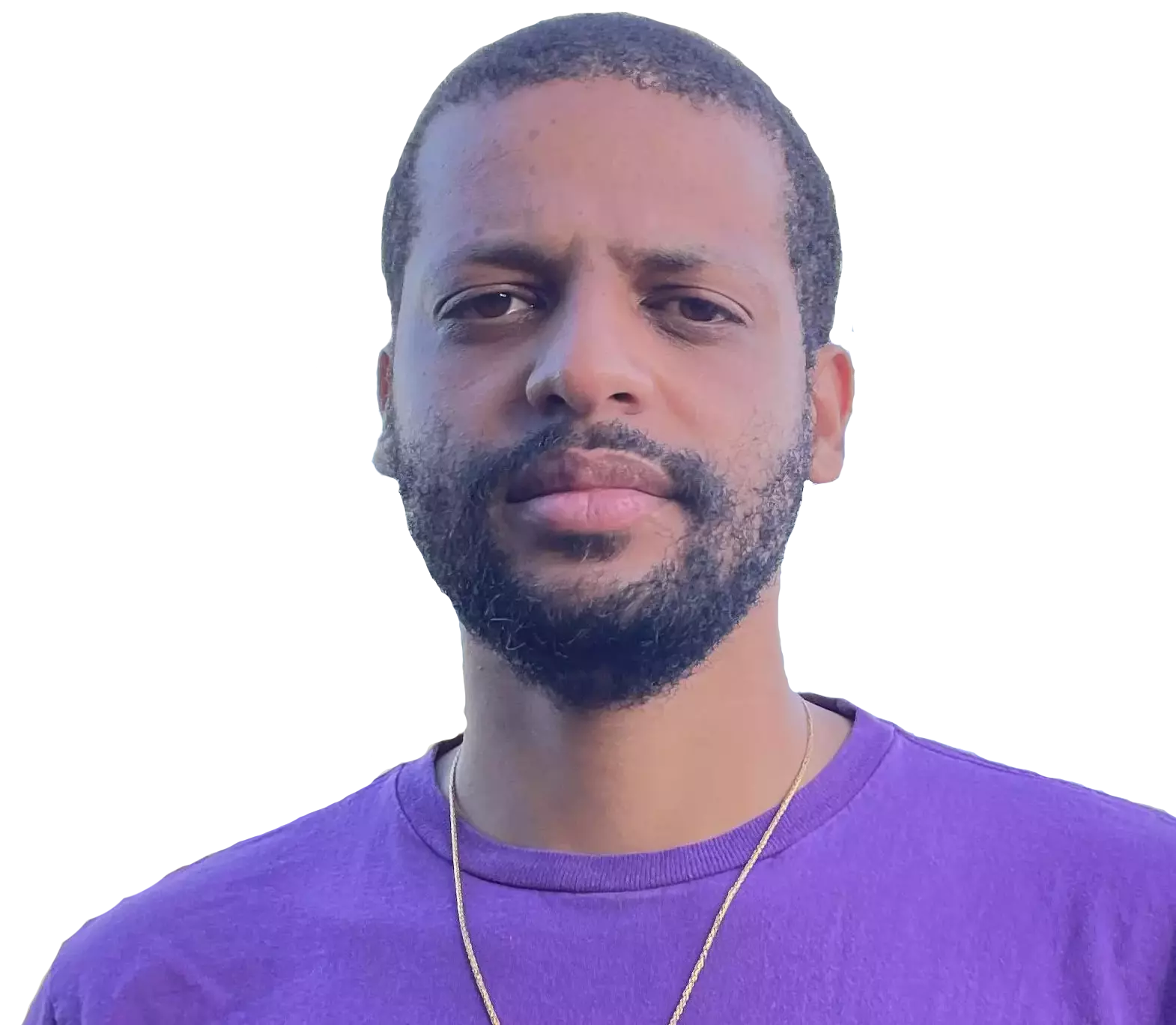
Jelani Osei Nelson, an accomplished Ethiopian-American professor, holds a prominent position as a Professor of Electrical Engineering and Computer Sciences at the University of California, Berkeley. His remarkable contributions to the fields of algorithms and computer science have earned him prestigious accolades, including the 2014 Presidential Early Career Award for Scientists and Engineers. Born on June 28, 1984, Jelani’s upbringing encompassed diverse cultures. With an Ethiopian mother and an African-American father, he was born in Los Angeles and grew up in St. Thomas, U.S. Virgin Islands. Jelani’s academic journey commenced at the Massachusetts Institute of Technology (MIT), where he pursued studies in mathematics and computer science. He continued his doctoral studies at MIT, focusing on efficient algorithms for massive datasets under the supervision of Bradley C. Kuszmaul, Charles E. Leiserson, Erik Demaine, and Piotr Indyk. Jelani’s expertise lies in the development of efficient algorithms and handling big data. He made significant contributions to streaming algorithms and dimensionality reduction, including proving the optimality of the Johnson-Lindenstrauss lemma, developing the Sparse Johnson-Lindenstrauss Transform, and devising an asymptotically optimal algorithm for the count-distinct problem. Throughout his career, Jelani has been recognized with various honors and awards. Notably, he received the Office of Naval Research Young Investigator Award in 2015, the Director of Research Early Career Award in 2016, and an Alfred P. Sloan Foundation Fellowship in 2017. In 2022, he was honored with the ACM Eugene L. Lawler Award. Beyond his research endeavors, Jelani is committed to advocating for rigorous math education. He voiced concerns about the proposed California Mathematics Framework, believing that modifying the curriculum could hinder underprivileged students' access to a robust mathematical education. He co-founded the David Harold Blackwell Summer Research Institute, which aims to increase the number of African-American students pursuing PhDs in mathematics. Jelani’s passion for education extends to his creation of AddisCoder, a computer science summer program for Ethiopian high school students in Addis Ababa. Since its inception in 2011, AddisCoder has empowered over 500 alumni, some of whom have gone on to study at prestigious institutions worldwide and pursue advanced degrees in science and mathematics. In 2022, Jelani co-organized JamCoders, a similar program in Jamaica inspired by AddisCoder. Jelani Osei Jelani’s exceptional contributions to the fields of algorithms and computer science, coupled with his dedication to education and advocating for mathematical rigor, make him an influential figure and an inspiration to aspiring researchers and students alike. His passion for knowledge dissemination and commitment to empowering underrepresented communities continue to shape the landscape of computer science and pave the way for future breakthroughs.